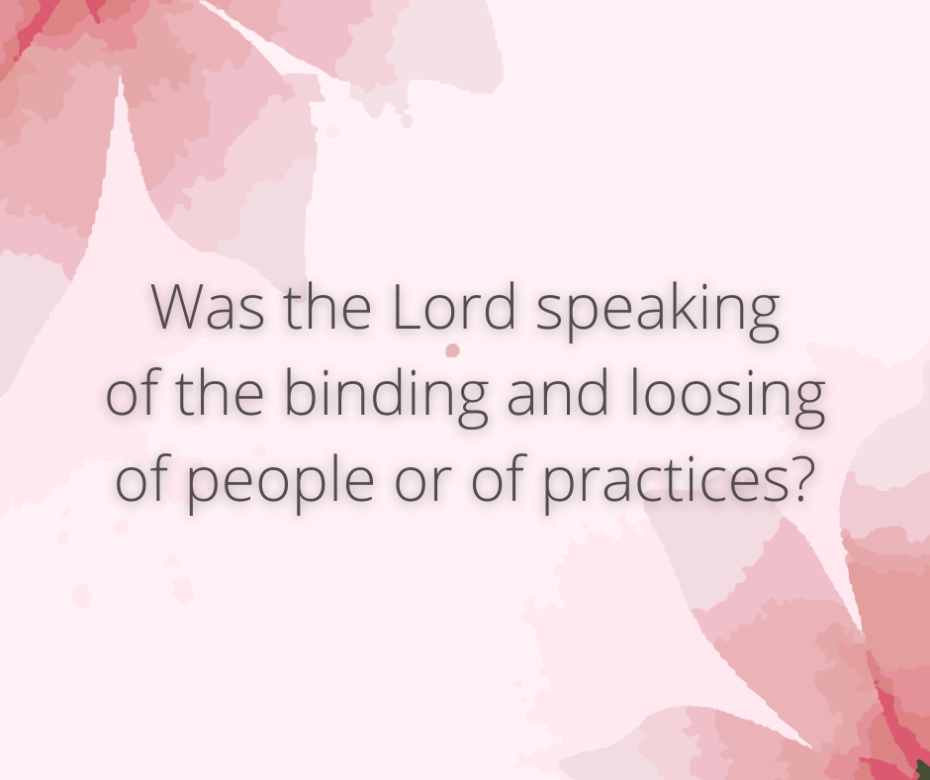“And I also say to you that you are Peter, and on this rock, I will build My church, and the gates of Hades shall not prevail against it. And I will give you the keys of the kingdom of heaven, and whatever you bind on earth will be bound in heaven, and whatever you loose on earth will be loosed in heaven” (Matt 16:18-19).
Normally I do not do much preparation for answering questions on podcasts. By not preparing in advance, the answers sound very spontaneous. Well, they are.
But when David Renfro and I were answering a question the other day about Matt 16:18-19, we decided we needed to stop and do a bit of preparation.
I found some great quotes from two commentators that we shared on the podcast.
R. T. France wrote that,
The metaphor of “tying up” and “untying” speaks also of administrative authority. The terms are used in rabbinic literature for declaring what is and is not permitted. When the same commission is given to the whole disciple group in 18:18 it will be specifically in the context of dealing with sin within their community (see comments there). Such authority to declare what is and is not permissible will of course have personal consequences for the person judged to have sinned, but it is the prior judgment in principle which is the focus of the “tying” metaphor, and there, as here, the objects of both verbs will be expressed in the neuter, not the masculine; it is things, issues, which are being tied or untied, not people as such… (Matthew, p. 626).
Leon Morris agrees:
The metaphor of binding and loosing was used by the rabbis for declaring forbidden or permitted. There is a strong opinion that the Christians thought rather of excluding from and admitting to the Christian community. This may be correct, though we should bear in mind that [the word] whatever is neuter both times and that this fits better with things than with people. If we take this seriously, the saying means that the Spirit-inspired church will be able to declare authoritatively what things are forbidden and what things are permitted (Matthew, p. 426).
Many have suggested, as Morris mentions, that Jesus was saying that Peter and the other apostles (compare Matt 18:18) had the authority to determine who would and who would not be in the kingdom (based on who believed in Jesus and who did not). But that was not the issue here. Instead, the Lord was talking about what practices will be permitted and what practices will be forbidden in the local church.
In a sense, the apostles are still doing this today. Their writings (including their reports of the Lord Jesus’ teachings) tell us what believers should and should not do.
Paul said in Eph 2:20 that the church is built on the foundation of the apostles and prophets (with Christ as the cornerstone). The apostles were not only part of the first generation of Christians, but they were also leading members of the foundation of the church. They were used by the Lord to give us the instructions we need to please God.


